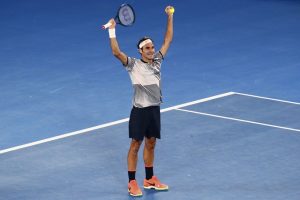
Praising older athletes achievements by denying the benefits of growing old is not acceptable anymore. High-level athletes should be a source of inspiration to all ages.
In a recent article published by the Guardian, Kevin Mitchell deemed the 2018 Australian Open Champion, Roger Federer, Ageless. Wining such a difficult championship at the age of 36 is certainly an unprecedented and magnificent achievement. However, neglecting any possible positive aspect of ageing is an unforgivable mistake.
Professional sports have historically been the prime space for the cult of the youth. From companies to nations, young and muscular bodies have openly been used as living billboards. The demographic change in the rich nations has already started to change attitudes. However, the search for an eternal youth still dominates marketing companies.
The cult of the youth is not only problematic as a model to the whole society. It is also particularly harmful to athletes themselves. Too often we can read histories about former stars falling into misery.
What is particular interesting and relevant about Federer’s history is how technology and new knowledge are opening new possibilities to people continue to fully contribute to society as long as they grow old. Furthermore, it is about time to start to give proper value to the positive aspects of ageing.
Any professional athlete knows that the psychological preparation is as important as the physical. Experience, a feature that only comes with age, is one of the most important aspects of the “mind game”. Federer used a lot of his 76 grand slams experience during the last Australian Open.
Perhaps experience taught Federer “not to play every tournament possible” an strategy that according to him have added years to his career. Asked about how much longer he could continue to play he replied: “Honestly, I don’t know. I have no idea. I’ve won three slams now in 12 months. I can’t believe it myself. I’ve just got to keep a good schedule, stay hungry, then maybe good things can happen. Then I don’t think age is an issue, per se. It’s just a number”.

